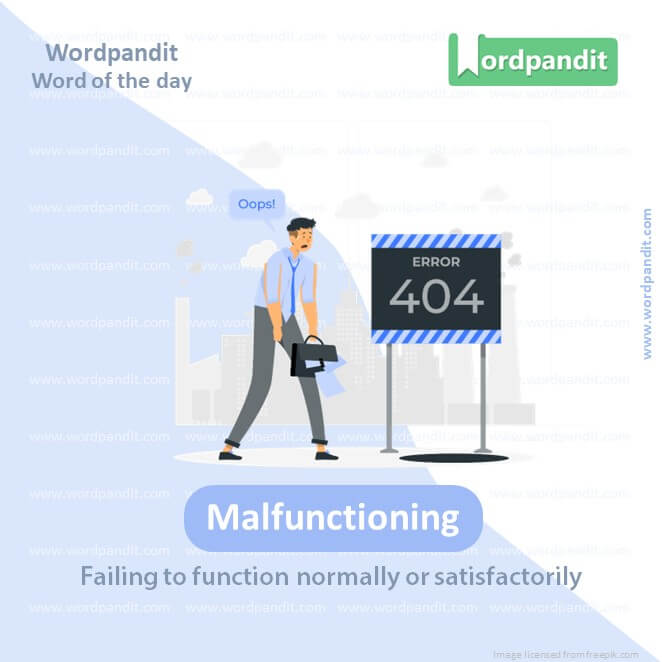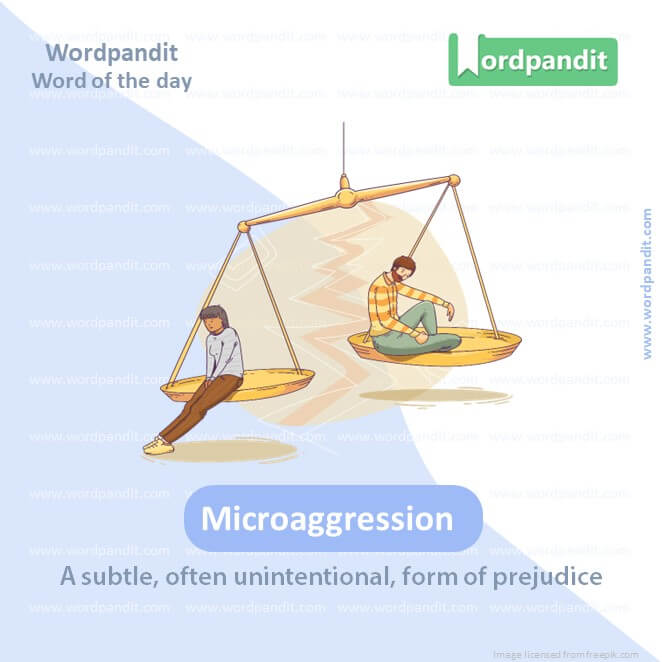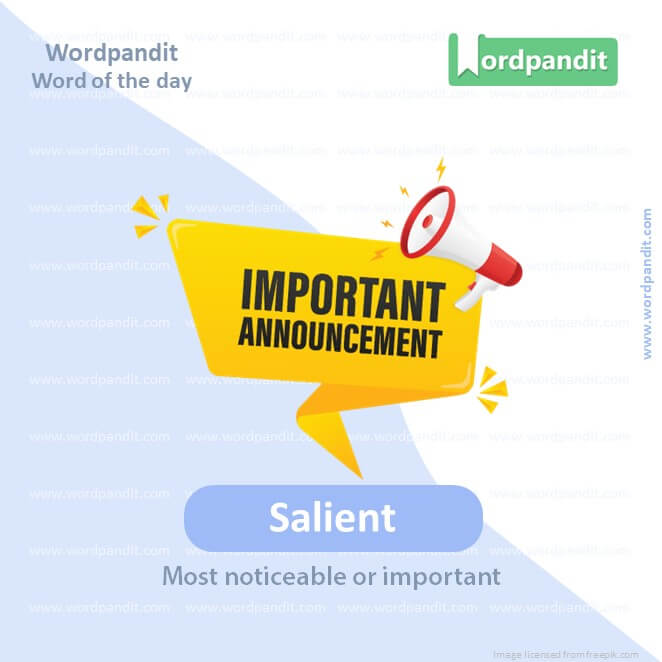Daily Vocabulary Words: List of Daily Used Words
Hi there. Welcome to this special section @ Wordpandit.
Our endeavour here is straightforward: highlighting important daily vocabulary words, you would encounter in The Hindu. This is your repository of commonly used words; essentially, we are posting a list of daily used words. Hence, this has significant practical application as it teaches you words that are commonly used in a leading publication such as The Hindu.
Visit the website daily to learn words from The Hindu.

WORD-1: Biophysicists
CONTEXT: Biophysicists from the University of Delhi have recently achieved a breakthrough in the field of DNA manipulation.
SOURCE: The Hindu
EXPLANATORY PARAGRAPH: Imagine scientists who love to study how living things, like humans and animals, work by looking really, really close at tiny parts of them. Biophysicists are those scientists! They use science to understand how our bodies and nature work.
MEANING: Scientists who apply physics to biology (noun)
PRONUNCIATION: Bio-FIZZ-ih-sists
SYNONYMS: Researchers, Biologists, Physicists, Life Scientists, Investigators, Laboratory Scientists, Experimentalists
USAGE EXAMPLES:
1. Many biophysicists work in labs with microscopes.
2. The biophysicist explained how muscles move.
3. Without biophysicists, we wouldn’t understand many things about our bodies.
4. The book was written by a renowned biophysicist.

WORD-2: Malfunctioning
CONTEXT: Trains on the Mumbai Metro line are malfunctioning due to an unknown software glitch causing commuter chaos.
SOURCE: The Hindu
EXPLANATORY PARAGRAPH: Think about a toy that doesn’t work the way it should. That means it’s malfunctioning. Anything that doesn’t do its job right is malfunctioning.
MEANING: Failing to function normally or satisfactorily (adjective)
PRONUNCIATION: Mal-FUNK-shuh-ning
SYNONYMS: Broken, Faulty, Defective, Out of Order, Glitchy, Non-operational, Dysfunctional
USAGE EXAMPLES:
1. My computer is malfunctioning and keeps turning off.
2. The malfunctioning toy robot wouldn’t move forward.
3. She tried to use the malfunctioning pen but it wouldn’t write.
4. There was a malfunctioning alarm in the building.

WORD-3: Microaggression
CONTEXT: An article today on The Hindu discussed how microaggressions can lead to a toxic work environment in tech startups.
SOURCE: The Hindu
EXPLANATORY PARAGRAPH: Imagine someone says something that hurts another person’s feelings without meaning to. This is called a microaggression. It’s a small act or word that can hurt someone, especially if it’s about where they come from or how they look.
MEANING: A subtle, often unintentional, form of prejudice (noun)
PRONUNCIATION: My-kro-ag-GRESH-un
SYNONYMS: Insult, Put-down, Slight, Snub, Dig, Indirect Offense, Veiled Insult
USAGE EXAMPLES:
1. Her comment was seen as a microaggression towards his background.
2. Some people don’t realize when they make a microaggression.
3. Awareness about microaggressions is growing in schools.
4. He felt hurt by the microaggression but tried to explain why it was problematic.

WORD-4: Salient
CONTEXT: The finance minister’s speech was marked by some salient points on the country’s tax reforms.
SOURCE: The Hindu
EXPLANATORY PARAGRAPH: If something stands out and is easy to see or notice, we call it salient. Like if one toy in your box is much bigger than the others, that toy is salient.
MEANING: Most noticeable or important (adjective).
PRONUNCIATION: SAY-lee-ent
SYNONYMS: Prominent, Noticeable, Conspicuous, Striking, Outstanding, Pronounced, Evident
USAGE EXAMPLES:
1. The most salient feature of the house was its big red door.
2. Her salient argument convinced everyone in the room.
3. The salient point of his speech was about kindness.
4. One salient detail caught my attention in the story.

WORD-5: Sedated
CONTEXT: The elephant was sedated by wildlife veterinarian teams after it wandered into a residential area in Assam.
SOURCE: The Hindu
EXPLANATORY PARAGRAPH: Sometimes, doctors give medicine to people or animals to make them feel calm or sleepy, especially if they are in pain or are scared. When someone feels this way because of the medicine, we say they are sedated.
MEANING: Calmed by the administration of a sedative drug (adjective)
PRONUNCIATION: seh-DAY-ted
SYNONYMS: Calmed, Relaxed, Drowsy, Drugged, Anesthetized, Tranquilized, Numb
USAGE EXAMPLES:
1. The lion was sedated before the vet checked its teeth.
2. After the surgery, the patient felt sedated and rested in bed.
3. They sedated the anxious dog during the thunderstorm.
4. The medication sedated him, and he fell asleep quickly.
WORD-6: Pyre
CONTEXT: They walked in silence carrying the torch that would light the pyre, keeping alive traditions that are centuries old.
SOURCE: The Hindu
EXPLANATORY PARAGRAPH: Think of a big pile of wood and branches that’s set on fire. That’s called a pyre. Long ago, some people used pyres to say goodbye to someone who passed away.
MEANING: A large pile of wood for burning, especially as part of a ceremony. (noun)
PRONUNCIATION: PY-er
SYNONYMS: Bonfire, Blaze, Inferno, Fire, Flame, Conflagration, Torch
USAGE EXAMPLES:
1. The villagers gathered around the pyre to celebrate the festival.
2. Ancient cultures sometimes used a pyre for funerals.
3. As night fell, the pyre illuminated the entire camp.
4. The pyre burned brightly, signaling the start of the ceremony.
WORD-7: Coalesced
CONTEXT: The villagers coalesced to protest against the government’s decision to clear forest land for a new project.
SOURCE: The Hindu
EXPLANATORY PARAGRAPH: Imagine you have a bunch of tiny water droplets that come together to form one big drop. That’s what coalesced means – when smaller things come together to become one bigger thing.
MEANING: Came together to form one mass or whole. (verb)
PRONUNCIATION: Koh-uh-LESSED
SYNONYMS: Merged, United, Combined, Joined, Fused, Amalgamated, Integrated
USAGE EXAMPLES:
1. The two small streams coalesced into a larger river.
2. Over time, the group’s ideas coalesced into a solid plan.
3. The different melodies coalesced into a beautiful song.
4. Her dreams and reality finally coalesced.
WORD-8: Hullabaloo
CONTEXT: There was quite a hullabaloo in the Parliament today over the proposed amendment to the constitution.
SOURCE: The Hindu
EXPLANATORY PARAGRAPH: Hullabaloo is a fun word that means a lot of noise or fuss, usually because people are excited or upset about something. Like when everyone is shouting and cheering at a birthday party, that’s hullabaloo!
MEANING: A big noise or fuss, usually because of excitement or disagreement. (noun)
PRONUNCIATION: HULL-uh-buh-loo
SYNONYMS: Uproar, Commotion, Fuss, Ruckus, Disturbance, Tumult, Brouhaha
USAGE EXAMPLES:
1. There was a huge hullabaloo when the team won the game.
2. What’s all the hullabaloo about in the backyard?
3. The unexpected announcement caused quite a hullabaloo.
4. Every time the cat enters the room, the birds create a hullabaloo.
WORD-9: Surveillance
CONTEXT: The recent increase in the surveillance of public places by the local government has sparked a debate over privacy rights.
SOURCE: The Hindu
EXPLANATORY PARAGRAPH: Imagine someone is watching and keeping track of what’s happening in a place to make sure everyone is safe. That act of watching closely is called surveillance.
MEANING: The act of closely watching or monitoring a place or people, usually for security reasons. (noun)
PRONUNCIATION: Sur-VAY-lance
SYNONYMS: Observation, Monitoring, Watch, Supervision, Inspection, Oversight, Vigilance
USAGE EXAMPLES:
1. The bank has 24-hour surveillance to keep it safe.
2. Cameras provide surveillance in the shopping mall.
3. The detective conducted surveillance on the suspect’s home.
4. Many public places have surveillance systems for safety.
WORD-10: Dichotomy
CONTEXT: The op-ed today in The Hindu explored the dichotomy between the country’s rich cultural heritage and its struggle to adapt to global cultural changes.
SOURCE: The Hindu
EXPLANATORY PARAGRAPH: Dichotomy is like splitting something into two opposite parts. Like if you had a toy and you split it into a day side and a night side, that’s a dichotomy!
MEANING: A division or contrast between two things that are completely opposite. (noun)
PRONUNCIATION: Dye-KOT-uh-mee
SYNONYMS: Division, Split, Separation, Contrast, Polarization, Bifurcation, Duality
USAGE EXAMPLES:
1. There’s a dichotomy between his public and private life.
2. The movie explores the dichotomy of good and evil.
3. The dichotomy between rich and poor is evident in the city.
4. She discussed the dichotomy between work and leisure.
Vocabulary Daily Use
In the fascinating world of language learning, we often concentrate on taking giant leaps, but the real magic lies in the small steps of ‘vocabulary daily use’. These frequently used words and phrases form the backbone of practical communication and understanding. Therefore, mastering ‘vocabulary daily use’ is a crucial element in achieving language fluency.
To effectively learn ‘vocabulary daily use’, one needs to venture beyond the traditional textbook resources. The real essence of these words unveils itself in everyday exposure and interactions. Engaging with a variety of material like novels, magazines, newspapers, podcasts, films and digital content deepens the understanding of ‘vocabulary daily use’. Immersion in these contexts yield natural, everyday language that bridges the gap between the classroom and the real world.
The journey of mastering ‘vocabulary daily use’ necessitates the integration of innovative memory techniques. Flashcards and the Leitner System aid in embedding these words into your long-term memory by promoting active recall. Additionally, the use of mnemonic devices, which allow you to associate ‘vocabulary daily use’ with personal and familiar narratives, can enhance your ability to remember and recall these words.
Moreover, it’s important to remember that ‘vocabulary daily use’ isn’t just about comprehension- it’s about practice and active usage. Incorporate these words in your day-to-day communication and social interactions. This not only solidifies your understanding but also accelerates learning and internalization of ‘vocabulary daily use’.
In a nutshell, mastering ‘vocabulary daily use’ is a continual process that demands exposure, creative learning strategies and assertive practice. The commingling of these tactics brews the perfect formula that allows learners to seamlessly integrate ‘vocabulary daily use’ into their linguistic repertoire. And with that, they can navigate the nuances of language with confidence and ease.










